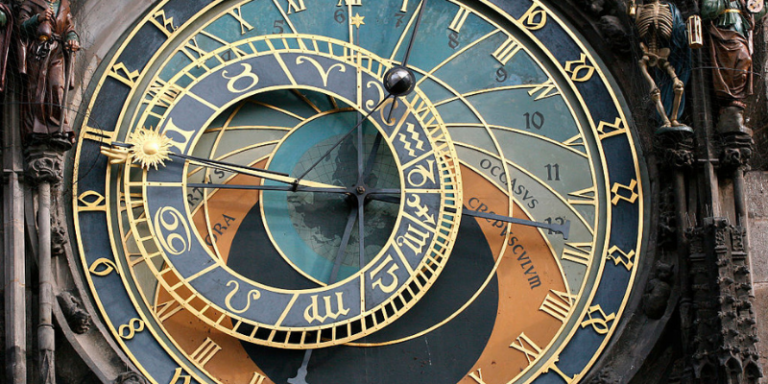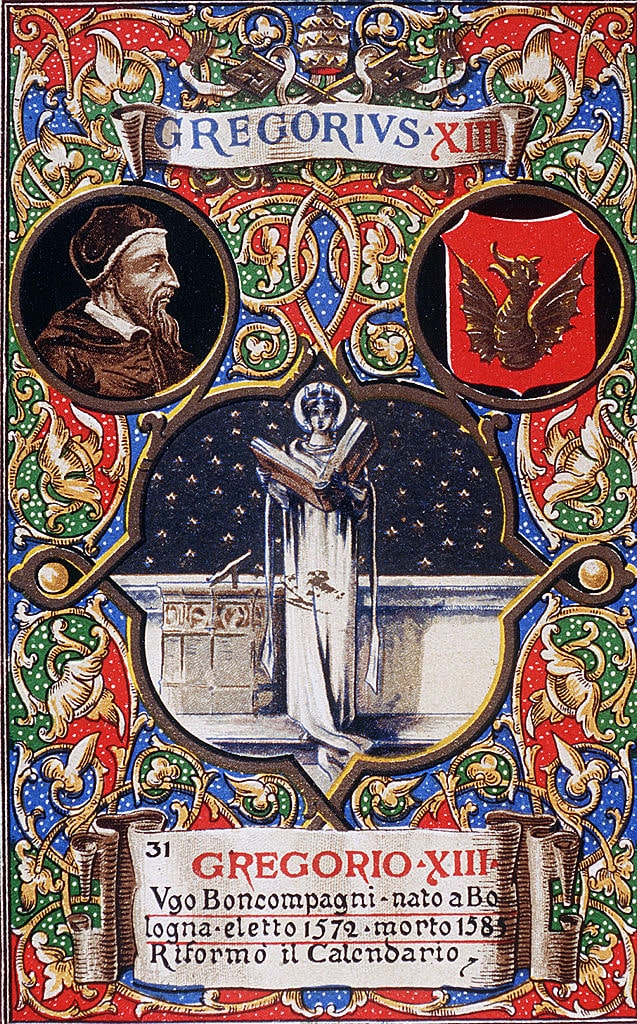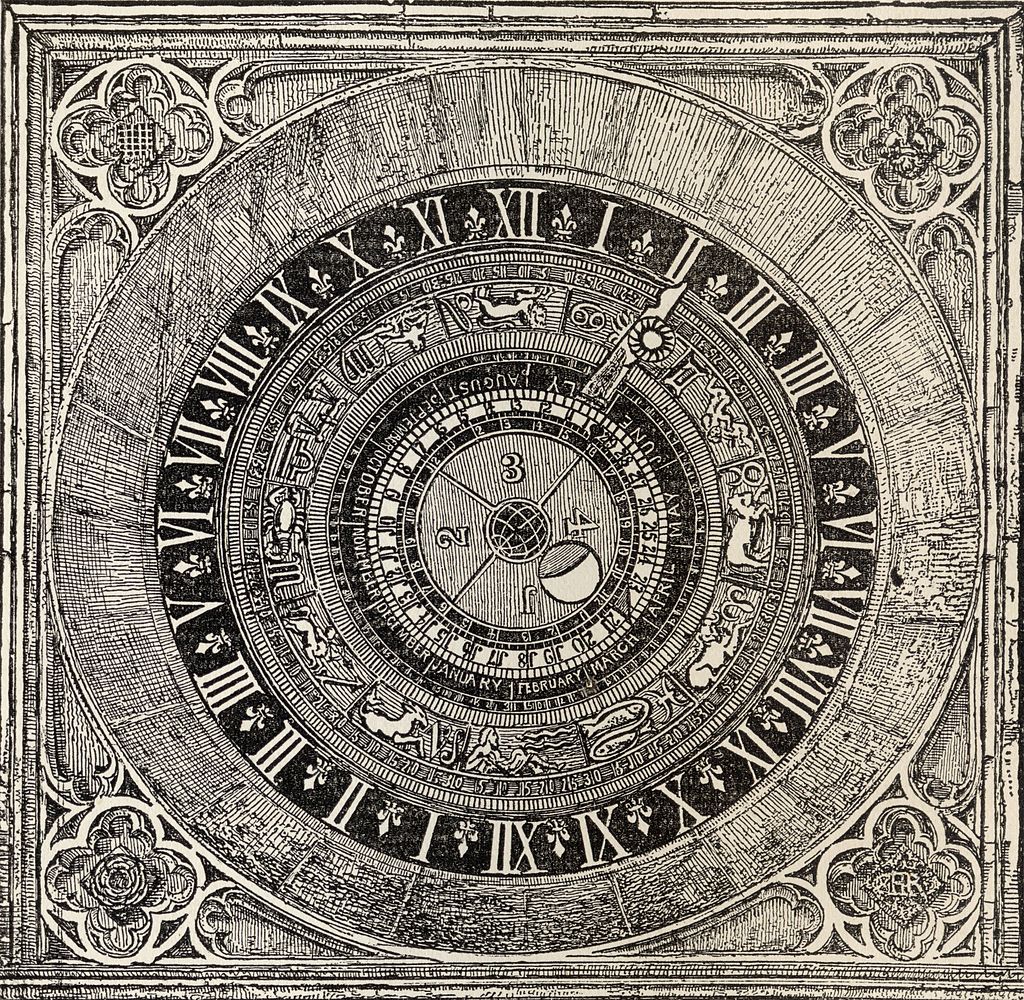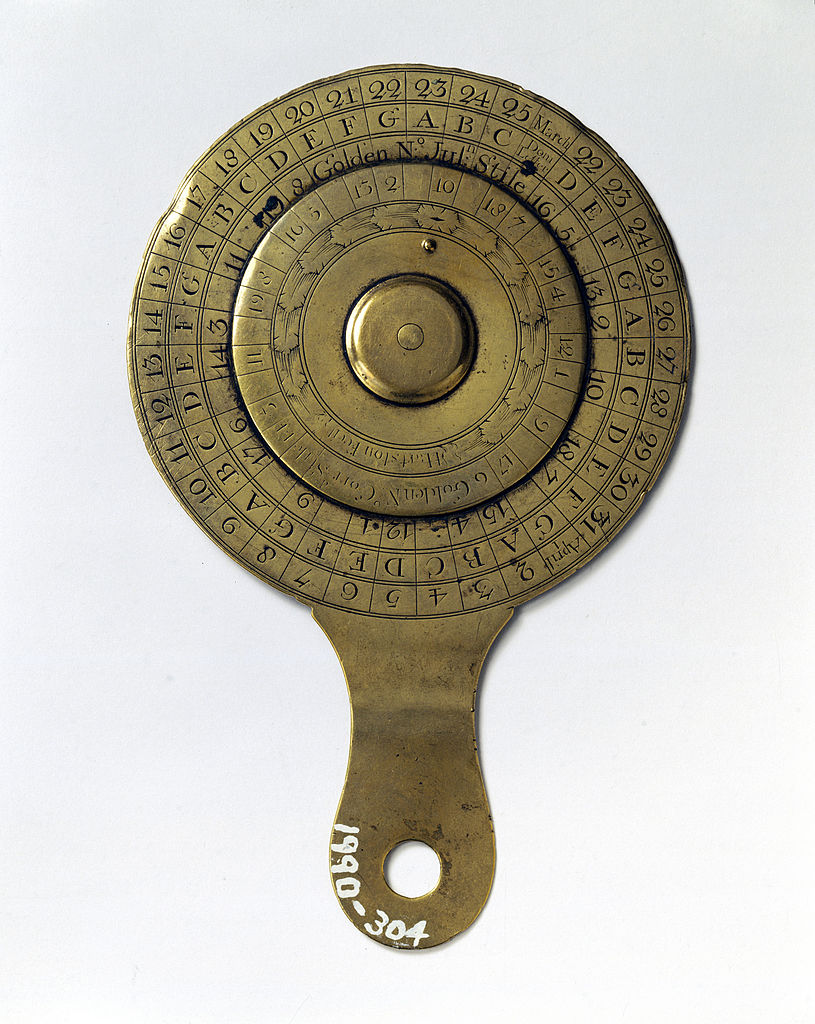New Year’s Day: Why January 1st?
What day people celebrate the beginning of the new year depends on their religion and their politics.
By: Laura Valkovic | January 1, 2025 | 754 Words

The Prague Astronomical Clock (Photo by: PHAS/Universal Images Group via Getty Images)
It may seem obvious that January 1 marks the start of a new year. But how about January 14, February 5, April 13, August 30, September 29, and March 7? These dates may appear to have nothing in common, but each one marks the beginning of a new year somewhere around the world.
Power and politics through the ages have influenced the calendar and the day we choose to celebrate the arrival of a new year. So, why do Americans choose to mark New Year’s Day on January 1?
Changing Calendars

Italian postcard commemorating Pope Gregory 13, who reformed the calendar. (Photo by Fototeca Gilardi/Getty Images).
Through the ages, calendars have described the Earth and stars differently, according to the astronomy and scientific knowledge of the time. Today, Western civilization uses the solar Gregorian calendar. It has become the most widely used calendar across the world and is now the international standard.
The Gregorian calendar was developed by the Catholic Church, after being commissioned by Pope Gregory XIII in the 1500s. It was made to replace the ancient Julian calendar, which was started by Roman emperor Julius Caesar on January 1, in the year 45 B.C. At that time, January 1 was counted as New Year’s Day.
During the Middle Ages, the date of the New Year varied according to different regions and religious practices. In some areas, it was celebrated on March 25, Lady Day, which is a memorial to the Mary, the mother of Jesus. In other areas of Europe, the New Year was on December 25 as a joint holiday with Christmas. Easter was another common New Year date.
The New Gregorian Calendar
Caesar’s calendar included a small error, and it gradually drifted away from the natural seasons. The Gregorian calendar corrected the issue in 1582, and January 1 was once again named as the beginning of the New Year. The date was chosen to fall on the same day as the Feast of the Circumcision of Christ.

Astronomical Clock In Hampton Court Palace. (Photo by: Universal History Archive/Universal Images Group via Getty Images)
The Gregorian calendar was quickly adopted by Catholic countries across Europe but strongly resisted in Protestant countries, where people were suspicious that it was a takeover plot by the Catholic Church. Britain didn’t agree to use the Gregorian calendar until 200 years later, in 1750. The Calendar (New Style) Act introduced the Gregorian calendar to the British Empire. By that time the Julian calendar had drifted by 11 days, so it was announced that Wednesday, September 2, would be followed directly by Thursday, September 14, 1752.
There was some public concern over the moving of religious holidays to fit the Catholic schedule, as well as whether people would be charged extra rents and taxes to cover the 11 “lost days.” Word went around that people had protested in what became known as the “English calendar riots.” Did these riots really happen? The rumors may have been greatly exaggerated, with the website Historic UK saying, “Most historians now believe that these protests never happened. You could say that the calendar rioters were the late Georgian equivalent of an urban myth.”

An 18th century brass calendar used for determining the dates of Easter in the Julian and Gregorian calendars. (Photo by SSPL/Getty Images)
Not everyone was upset at the change of calendar. Across the Atlantic, Benjamin Franklin reportedly wrote, “It is pleasant for an old man to be able to go to bed on September 2, and not have to get up until September 14.”
Historic UK tells another amusing tale:
“According to W.M. Jamieson in his book, ‘Murders Myths and Monuments of North Staffordshire,’ there is a tale about one William Willett of Endon. Always keen on a joke, he apparently wagered that he could dance non-stop for 12 days and 12 nights. On the evening of September 2nd 1752, he started to jig around the village and continued all through the night. The next morning, September 14th by the new calendar, he stopped dancing and claimed his bets!”
Politics, culture, and spiritual beliefs still influence how we keep time. The French revolutionaries invented their own calendar in the 1700s to mark the beginning of their new Republican Age, but it was later abandoned. Russia finally adopted the Gregorian calendar in 1918, following the Soviet Revolution. Orthodox churches still use the Julian calendar – which is now 13 days removed from the Gregorian calendar. Other societies across the world continue to observe their own systems, for the sake of tradition.
















